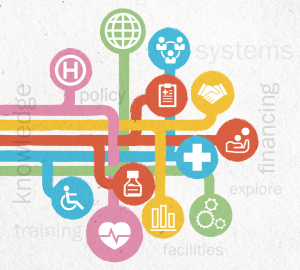Research
At the London School of Hygiene & Tropical Medicine we conduct research across a range of high, middle and low income settings, in partnership with country level research institutions and international agencies. We also work in areas affected by conflict and undergoing socio-political and epidemiological transitions. There is an emphasis on working across common health systems themes in multiple settings, maximising the potential for identifying patterns and learning.
In practice this is achieved through multi-country research programmes and multidisciplinary Centres providing a focus for work in thematic areas. Many studies involve interdisciplinary working, others retain a single disciplinary focus to analyse health policy and systems issues, including disciplines perhaps more unusual in their application, including history. Most of the School’s flagship research units, Centres and projects are multi-disciplinary, drawing together expertise to offer complementary and more holistic perspectives on a particular issue.
Exploring policy decision making: The London School of Hygiene & Tropical Medicine is home to a large and growing body of work analysing the nuances and complexities of power and politics in policy decision-making.
Health policy and systems in the UK: As well as its international work, the School hosts a number of groups working specifically on UK policies and systems which directly inform government policies.
Accessible and responsive frontline health systems: Understanding the reasons behind the mismatch between health policy rhetoric and policies, and the reality faced by people seeking to access essential care constrained by poverty, geographical isolation and disadvantage is a key focus of our research.
Financing health systems: Health financing systems are responsible for mobilising resources, pooling them to allow for risk sharing and cross-subsidy, and transferring resources to health care providers in ways that encourage equity, efficiency and quality.
Human resources in health systems: Health workers sit at the frontline of the health system. The supply and distribution of health workers is an important influence on access to health care; their attitudes and behaviours influence patients’ experience of using the health service.
Examining disease specific health systems: A significant strand of health systems research focuses on analytical and empirical work which examines disease-specific programmes and interventions from a health systems perspective.
Health systems and the new global architecture: Understanding health policy and systems development, operation and outcomes at national and local levels requires an understanding of global processes such as globalisation, inequalities, migration, trade and how health systems respond to these.
The private healthcare sector in low-income settings: The private sector is responsible for a large and growing share of treatment provision in many low and middle income countries, encompassing a heterogeneous set of providers, from international- standard corporate hospitals, to small-scale clinics, pharmacies, drug shops, and in some settings general retailers and itinerant drug vendors.
Policy engagement: Our research on health systems contributes directly to health policy and practice in the UK and around the world.
Building the field of health policy and systems research: As well as providing training through its wide variety of London-based and distance learning Masters degrees and PhD programmes, the London School of Hygiene & Tropical Medicine is contributing to building the field of health policy and systems research.

